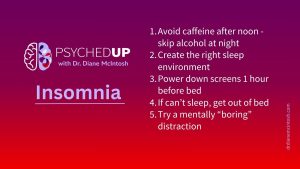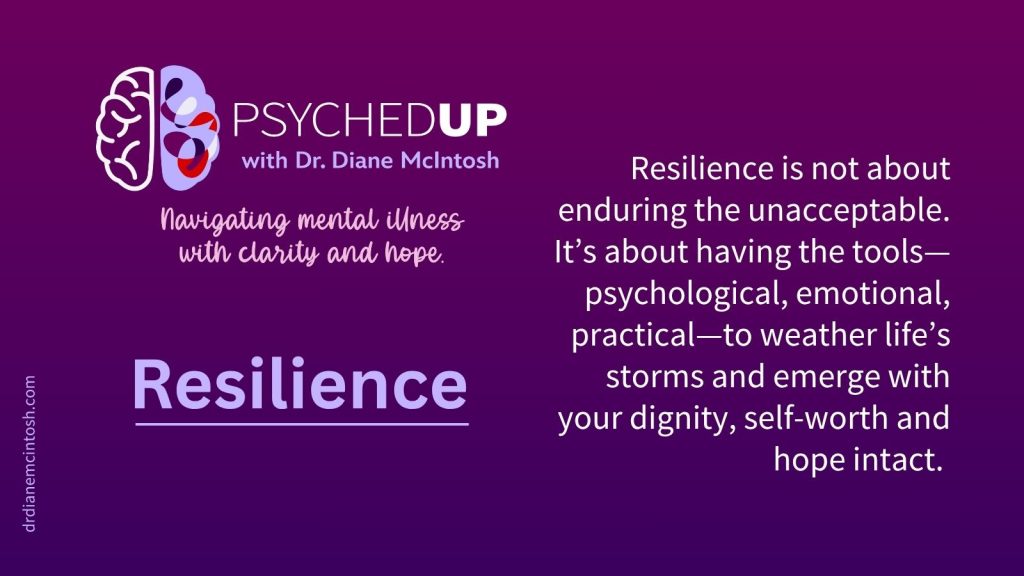
Struggling With Sleep? Here Are My Top Five Tips for Better Rest
I want to share my top five “sleep hygiene” habits that can support healthier sleep. They won’t solve chronic insomnia on their own, but they are essential ingredients for better rest.

The word resilience can mean different things to different people. For some, it suggests empowerment, an inner strength that helps them face adversity and emerge stronger. But for others, especially those who’ve lived through trauma or hardship, resilience can feel like a loaded word, a demand to “suck it up” or “just deal with it.” I want to be clear: that’s not how I see it.
Resilience doesn’t mean putting up with bullying, racism, or sexism. It doesn’t mean staying silent in the face of injustice. And it definitely doesn’t mean pushing through emotional pain without support or acknowledgment.
Resilience, in its truest form, is not about enduring the unacceptable. It is about having the tools—psychological, emotional, and practical—to weather life’s storms and emerge with your dignity, self-worth and hope intact.
We each come into the world with different temperaments. Some people seem to bounce back quickly after a setback. Others take longer. What matters is this: resilience isn’t fixed or static. It is something you can build, strengthen and share with others.
That is especially important when we consider early life adversity: neglect, chaos at home, or abuse. These experiences can chip away at our innate resilience and increase the risk of mental illness down the road, but they do not determine your future. Nothing is set in stone.
If you’ve had a difficult childhood or are currently facing overwhelming challenges, this is your cue to check in with yourself. Are you coping well? Are you getting the support you need? If not, reach out for help. There’s no shame in asking for help. In fact, that is often where strengthening your resilience begins.
You can learn to be more resilient, and you can teach it too. That is one of the most powerful things about resilience: it’s contagious. Whether you’re a parent, partner, coworker or community leader, modeling resilience helps others find their own strength.
I believe deeply in the value of developing and sharing these skills. It is one of the reasons I created PSYCHEDUP in the first place. Our mental health system is under pressure, and too many people feel alone in their struggle. I wanted to offer something hopeful, practical, and rooted in both science and compassion.
If you are interested in learning more about resilience, I invite you to listen to our episode on Resilience on PSYCHEDUP. You will hear the story of Gill Deacon, broadcaster, writer, and someone who has had to dig deep to find her way through multiple life-altering health challenges.
If you find the episode helpful, consider sharing it with someone who might benefit from hearing it. Leaving a rating or review can also help more people discover the podcast and remind them that they’re not alone.
Let’s keep building resilience together.
With gratitude,
Diane

Diane McIntosh, MD, FRCPC
Psychiatrist, Founder and CEO RAPIDS Health, Host PSYCHEDUP

I want to share my top five “sleep hygiene” habits that can support healthier sleep. They won’t solve chronic insomnia on their own, but they are essential ingredients for better rest.

There’s something about flipping the page on the calendar from December to January. For many of us, the beginning of a new year represents a clean slate. So, if you find yourself in the mood to take that time to pause and reflect after the holidays, here are a few tips on making smart New Year’s resolutions.

The holidays can be stressful. Here are a few thoughts on how to make the most of what can be a most wonderful time of the year.
Please provide your contact information in the form below. It helps if you provide enough detail in your message so we can help. We look forward to hearing from you!
Thank you for your message. We will respond to your email promptly.